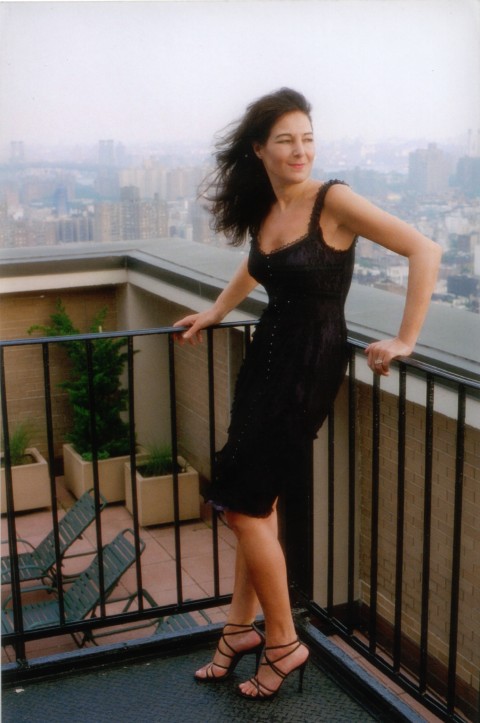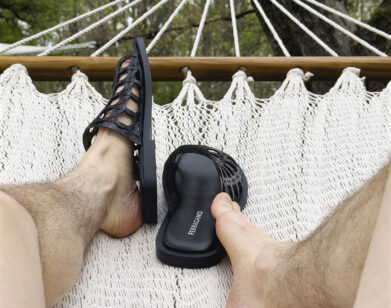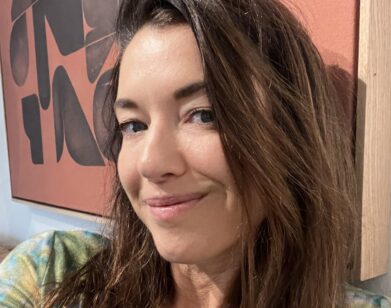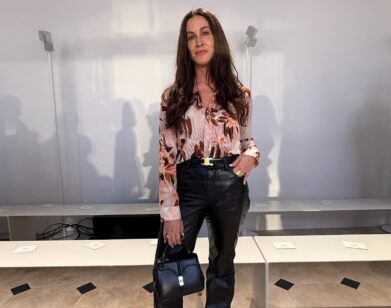Susan Shapiro, Off the Hook

ABOVE: SUSAN SHAPIRO
New Yorkers are notorious neurotics. In a cold city, we crave substances over people, and can prefer the reliability of a strong drink. Yet, for author Susan Shapiro, who had a two-pack-a-day menthol habit for 27 years, choosing addiction was ruining her life. In Unhooked: How To Quit Anything (Skyhorse Publishing), Shapiro puts her head together with her former therapist, Dr. Frederick Woolverton, to make a passionate personal account of addiction therapy. Both doctor and patient share sad, sometimes funny, and often piercingly honest thoughts on substance abuse in a narrative that becomes part self-help book, part tale of triumph.
From heroin to ice cream, Shapiro and Woolverton have seen everything, and confess to their own dark impulses. In a world full of alluring distractions, Unhooked is a marvelous map on the path to putting down whatever your drug of choice is—and replacing it with what you really want in life. We spoke with co-author Shapiro about her own unorthodox treatment with Woolverton, needing a new shrink to help her deal with her old shrink, getting addicted to addiction, the dangers of Diet Coke and Facebook, and how she deals with being in a constant state of recovery.
ROYAL YOUNG: As someone who had been in therapy before and tried so many different things to quit smoking, what was it about Fred’s approach that was different and worked for you?
SUSAN SHAPIRO: A lot of people don’t know you can quit smoking with therapy. I’d never even heard of it. The main way people try to quit things is groups, AA, Hazelton type places, or cold turkey. I had tried similar things, but never one-on-one psychotherapy. Fred is extremely behavioral. A lot of therapists are like, “Tell me about your past.” Fred was like, “I don’t give a fuck about your past. Stop. Now.” Fred also told me about his life, his own story, which had an extreme effect on me. I was used to blank-slate shrinks, almost robotic, boring and distancing. Fred would tell me his mother was a raging alcoholic who used to beat him up all the time and still drinks in her 80s. He smoked for twenty years. I was just so blown away.
YOUNG: How has writing a book together changed the dynamic of your relationship with Dr. Woolverton?
SHAPIRO: [laughs] Fred was always like, “Lead the least secretive life you can.” But now that we’re writing a book he’s like, “You can shut up a little.” I’m very provocative. Now that he’s attached to me, he’s like, “Okay, be quieter.” But he’s my former therapist, no longer my therapist. We switched to co-authors. Some things about it have been beautiful, exciting, and amazing. Some things have been difficult.
YOUNG: Do you need to be in therapy with someone else to kind of deal with it?
SHAPIRO: Yes, I need a new shrink to help me deal with writing a book with my old shrink. I absolutely did.
YOUNG: [laughs] You had written this hilarious piece for The New York Times. There were a lot of commenters—
SHAPIRO: I made a mistake in the piece. I should have called him my former therapist. I no longer pay him for therapy.
YOUNG: Right, I just wanted to address it.
SHAPIRO: I saw Fred as a therapist for 15 years. Once you’re in the role with somebody where they’re sort of your mentor, a title is a tone of respect. Whenever I think about Fred, I think, “Oh, this is my brilliant therapist, Fred.” But I should have been careful to say this is my former therapist. Apparently some people feel like it’s a dual relationship. He got no money for the book. It was completely my idea.
YOUNG: How did the idea of Unhooked come about?
SHAPIRO: Over the years, millions of people have come to me for advice who have serious alcohol or drug addiction.
YOUNG: Could we also talk a bit about some of the more eccentric addictions that people wouldn’t think of?
SHAPIRO: Well, I did the substance shuffle, so every time I quit one thing, I would get addicted to something else. Once I quit cigarettes, I smoked too much dope, once I quit dope, I was drinking too much, then I was chewing amazing amounts of gum; I got addicted to sugar when Crumbs cupcakes moved across the street. I got addicted to Diet Coke.
YOUNG: How many cans of Diet Coke were you drinking per day?
SHAPIRO: Like, 12.
YOUNG: That’s pretty nuts.
SHAPIRO: Right. I had all these soft addictions. Though Fred says they’re all the same thing. Like, shopping, in a way, has the same dynamic as smoking. Because what happens in shopping is, you’re bored, you’re frustrated, you have this negative emotion and instead of letting the emotion play out, be honest, confronting it, and letting yourself feel pain, you go buy something that takes you out of yourself and feels fun and exciting. But you have to go back to yourself.
YOUNG: I actually heard this really scary thing, that when people get Facebook notifications it literally does release serotonin, a little boost to your brain.
SHAPIRO: Oh yeah! Any substance or activity can become an addiction. There’s someone in the book who became addicted to exercise, another got addicted to tattoos. Fred himself became addicted to eating ice cream late at night.
YOUNG: How do you differentiate between a habit and an addiction?
SHAPIRO: In the book, we actually do a test. One way is, stop doing Facebook for a week and see how you feel. If you can and you don’t have any symptoms, chances are it’s just a habit.
YOUNG: What would symptoms be?
SHAPIRO: Missing it, sweating, crying. Having withdrawal symptoms. If you take away someone’s Internet and they freak out, that’s a sign they’re addicted.
YOUNG: [laughs] That’s scary.
SHAPIRO: Understanding and admitting that you have an issue is the first way to change. When you quit a toxic habit, you leave room for something beautiful to take its place. What we tried to do with Unhooked is show that when you quit an addiction, you can re-channel that energy. You have to figure out what you’re not getting and get it.
YOUNG: So have you sort of changed roles? Do you feel like you want to help other people deal with addiction in a real way?
SHAPIRO: Yes, but I have an addictive personality myself and one of the things I’ve learned is, you’re always in recovery. Part of my healing process is being a mentor and teacher and helping people. Yet, at the same time, I have to be very careful about my own addictions.
YOUNG: How has that played out in your life? Since going to Fred, have you ever slipped back into getting addicted to something strange?
SHAPIRO: I got addicted to the addiction book. I actually started developing all the addictions of the people in the book that I was writing about, without realizing it.
YOUNG: What do you mean?
SHAPIRO: At one point, Fred went on vacation. We had been working together, 10-hour days, and I was so excited about the book. Then, he went away for 12 days, and I was working on a chapter about a woman who over-exercises and I started doing that. Then, I killed my back. I started doing painkillers, because I’d hurt my back, but also there was a pill popper in the book.
YOUNG: [laughs] Oh no. Well, I’m glad you didn’t get any tattoos.
SHAPIRO: [laughs] No tattoos yet.
UNHOOKED IS OUT NOW.






